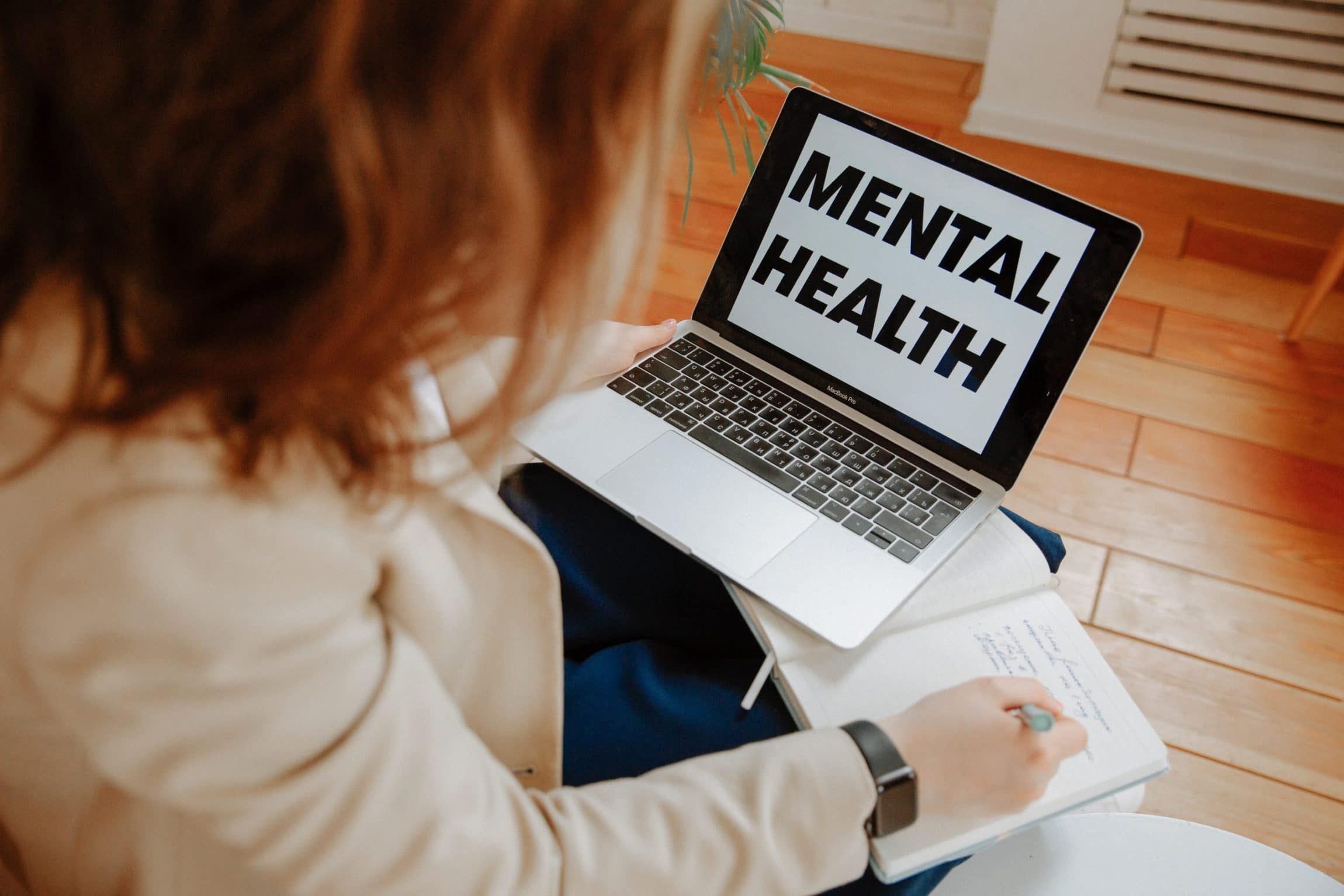Mental health is an essential component of overall well-being. It affects how we think, feel, and behave, influencing our daily lives, relationships, and overall quality of life. Mental health is more than just the absence of mental illness; it is about maintaining a healthy and balanced state of mind. Understanding mental health, recognizing signs and symptoms, and knowing the solutions can help individuals manage their mental health and lead a fulfilling life.
What is Mental Health?
Mental health refers to emotional, psychological, and social well-being. It impacts how we handle stress, relate to others, and make choices. Good mental health allows people to realize their full potential, cope with the normal stresses of life, work productively, and contribute to their community. Mental health is important at every stage of life, from childhood and adolescence through adulthood.
Mental health problems can affect anyone, regardless of age, gender, ethnicity, or background. While most people experience challenges with mental health at some point in their lives, mental health disorders can range from mild to severe, and early intervention is key to preventing further complications.
Signs and Symptoms of Mental Health Issues
Mental health problems can manifest in various ways, and they can vary from person to person. Some signs and symptoms are easier to recognize, while others may be more subtle. Below are some common signs that might indicate a mental health issue:
Emotional Symptoms:
-
Persistent feelings of sadness or depression that do not go away.
-
Uncontrollable mood swings, including feelings of extreme elation or irritability.
-
Overwhelming feelings of anxiety, nervousness, or fear.
-
Chronic feelings of hopelessness or worthlessness.
Behavioral Symptoms:
-
Social withdrawal or isolation, avoiding contact with friends or family.
-
Sudden changes in behavior, such as neglecting personal hygiene or taking part in risky activities.
-
Decreased ability to concentrate or make decisions.
-
A noticeable decline in performance at work or school.
-
Increased use of substances such as alcohol or drugs.
Physical Symptoms:
-
Unexplained physical ailments like headaches, stomach problems, or chronic pain.
-
Fatigue or lack of energy, even after adequate rest.
-
Disrupted sleep patterns, including insomnia or excessive sleeping.
-
Changes in appetite or weight (either loss or gain).
Cognitive Symptoms:
-
Difficulty concentrating or thinking clearly.
-
Memory problems or trouble organizing thoughts.
-
Feeling disconnected from reality or experiencing unusual perceptions.
Common Mental Health Disorders
Mental health disorders are complex and can manifest in many forms. Here are a few common conditions that impact mental health:
1. Depression:
Depression is one of the most common mental health disorders. It involves persistent feelings of sadness, loss of interest in activities once enjoyed, and difficulty functioning in daily life. Symptoms can range from mild to severe, affecting a person’s ability to work, sleep, and engage socially.
2. Anxiety Disorders:
Anxiety disorders, including generalized anxiety disorder, panic disorder, and social anxiety disorder, are characterized by excessive worry, fear, or nervousness. Individuals with anxiety disorders often experience physical symptoms like rapid heart rate, sweating, and dizziness.
3. Bipolar Disorder:
Bipolar disorder involves extreme mood swings, ranging from emotional highs (mania or hypomania) to deep lows (depression). These mood swings can significantly disrupt a person’s life, affecting relationships and daily functioning.
4. PTSD (Post-Traumatic Stress Disorder):
PTSD occurs after a person has experienced or witnessed a traumatic event, such as an accident, natural disaster, or violence. Symptoms may include flashbacks, nightmares, emotional numbness, and heightened anxiety.
5. Obsessive-Compulsive Disorder (OCD):
OCD is characterized by intrusive thoughts (obsessions) and repetitive behaviors or mental acts (compulsions). These behaviors are performed to reduce anxiety or prevent something bad from happening.
6. Eating Disorders:
Eating disorders, such as anorexia nervosa, bulimia nervosa, and binge-eating disorder, involve unhealthy eating patterns that can severely impact physical and emotional health.
Solutions for Improving Mental Health
Recognizing the signs of mental health issues is the first step toward seeking help and improving well-being. Fortunately, there are various strategies and solutions to support mental health:
1. Seek Professional Help:
Mental health professionals, such as therapists, counselors, or psychiatrists, can help individuals manage their mental health through counseling, psychotherapy, or medication. Therapy, including cognitive-behavioral therapy (CBT), can help individuals identify and address negative thought patterns. Medication may be prescribed for certain mental health disorders, such as depression or anxiety.
2. Build a Support Network:
Having a strong support network of friends, family, or support groups can be incredibly beneficial for mental well-being. Talking to trusted individuals about your feelings and experiences can provide emotional relief and help you feel understood. Support groups, either in person or online, allow people facing similar challenges to connect and share coping strategies.
3. Practice Stress-Reduction Techniques:
Managing stress is vital for maintaining mental health. Techniques such as mindfulness meditation, yoga, and deep breathing exercises can help individuals reduce stress, calm their minds, and improve emotional regulation. Even small moments of mindfulness throughout the day can make a significant difference in managing stress levels.
4. Stay Active and Exercise Regularly:
Exercise is not only beneficial for physical health but also for mental health. Physical activity releases endorphins, the body’s natural “feel-good” chemicals, which can boost mood and reduce stress. Aim for at least 30 minutes of moderate exercise most days of the week. Activities like walking, swimming, cycling, or yoga can be great ways to stay active and improve mental well-being.
5. Prioritize Sleep:
Sleep is essential for mental health. Lack of sleep can exacerbate symptoms of anxiety, depression, and other mental health conditions. Aim for 7-9 hours of restful sleep each night. Create a calming bedtime routine, limit screen time before bed, and maintain a consistent sleep schedule to improve sleep quality.
6. Maintain a Healthy Diet:
What you eat has a direct impact on your mood and mental clarity. A balanced diet rich in nutrients, including fruits, vegetables, whole grains, and lean proteins, supports brain function and emotional regulation. Avoid excessive caffeine, alcohol, and processed foods, as they can contribute to mood swings and energy crashes.
7. Set Realistic Goals and Expectations:
Unrealistic expectations can lead to feelings of failure and frustration. Set achievable goals and break them into manageable steps. Celebrate small victories along the way to build confidence and motivation.
8. Practice Self-Compassion:
Be kind to yourself, especially during difficult times. Self-compassion involves treating yourself with the same kindness and understanding that you would offer a close friend. Practice self-care, avoid harsh self-criticism, and acknowledge your achievements, no matter how small.
Conclusion
Mental health is an integral part of overall well-being, and understanding its signs, symptoms, and solutions can help individuals take control of their mental health and lead fulfilling lives. By recognizing early warning signs and seeking appropriate help, people can effectively manage mental health conditions. Incorporating healthy lifestyle habits, building a strong support system, and practicing stress-reduction techniques can significantly improve mental health and prevent future challenges. Taking proactive steps toward mental wellness is essential for living a balanced and healthy life.




